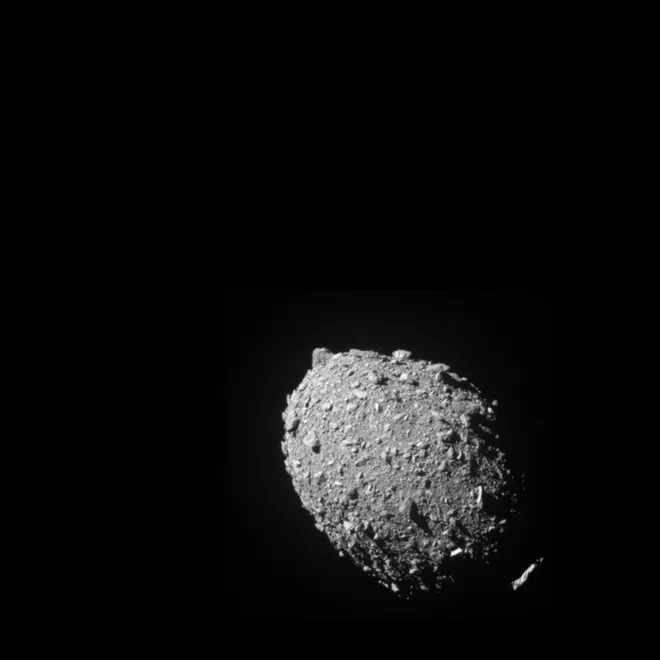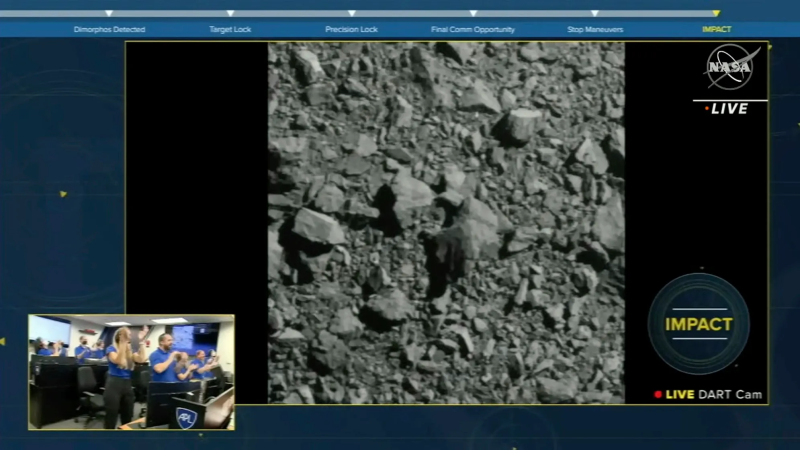Asteroids approaching: One as big as Mount Everest, one closer than the moon
Two asteroids have stargazers' attention this week – one the size of Mount Everest and another that will pass closer than the moon – just days before Asteroid Day.
The massive asteroid, named 415029 (2011 UL21), will pass Earth Thursday. At its closest point, it will be more than 4 million miles away, or 17 times as far from Earth as the moon, according to a European Space Agency news release. At more than 7,500 feet across, it is larger than 99% of near-Earth asteroids.
Two days later, the smaller asteroid will hurtle much closer to Earth, although astronomers say it also has a 0% chance of impact. The asteroid, dubbed 2024 MK, will pass within the moon's orbit of Earth, about 180,000 miles away. It will be observable from clear, dark skies with a small telescope on Saturday, the European Space Agency said.
Astronomers in South Africa spotted 2024 MK just weeks ago. Although it's less than 11% of the size of the asteroid passing by Thursday, it would still cause "considerable damage" if it hit the Earth, the European Space Agency said. An asteroid about its size could wipe out a city, according to the MIT Technology Review.
When the mountain-sized asteroid was discovered in 2011, it was classified as "potentially hazardous." An asteroid its size would have "worldwide effects" if it collided with the Earth, according to NASA.

More:NASA: Stargazers will see the 'closest thing to a planet parade' Saturday morning
NASA test successfully altered asteroids orbit
The size of the newly discovered 2024 MK is comparable to Dimorphos, an asteroid about 7 million miles from Earth that was the subject of humanity's first-ever successful planetary defense test two years ago. After a 10-month journey, a 1,260-pound NASA spacecraft successfully crashed into Dimorphos, altering its orbit by 32 minutes.
Scientists say that might be all that's needed to divert a deadly asteroid headed towards Earth.
Earlier this year, NASA posed a hypothetical scenario of an asteroid likely to strike Earth in 14 years to a group of government representatives, and found there is still work to do to prepare the world for a potential doomsday situation.
"We're using the capabilities that we have to really try to hopefully retire that hazard, to understand what's out there, and know if anything poses a threat," said Kelly Fast, NASA's acting planetary defense officer.
More:When space junk plummets to Earth and causes damage or injury, who pays?
Asteroids approach before anniversary of largest asteroid impact
The two astronomical fly-bys will come just in time for Asteroid Day on Sunday. The United Nations endorsed June 30 to commemorate the largest asteroid impact in recorded history and raise asteroid awareness.
On that day in 1908, an asteroid tore through Earth's atmosphere and exploded in the sky over Siberia, flattening the forested area underneath with a force 1,000 times greater than the nuclear bomb dropped on Hiroshima, scientists estimated from photos of the event.
Reindeer herders miles away described witnessing a fireball trailing smoke, then a brilliant flash, and a thunderous boom, according to NASA. Luckily, the asteroid exploded over a sparsely populated area, and few people died, but many reindeer were killed in the blast.
The U.N. adopted a resolution declaring Asteroid Day in 2016. Its co-founders include Queen guitarist Brian May, Apollo 9 astronaut Rusty Schweickart, and filmmaker Grigorij Richters.

This year, in honor of Asteroid Day, the Asteroid Foundation will host a two-day event in Luxembourg featuring lectures, space-themed workshops, and family activities on Friday and Saturday.
Cybele Mayes-Osterman is a breaking news reporter for USA Today. Reach her on email at cmayesosterman@usatoday.com. Follow her on X @CybeleMO.
Disclaimer: The copyright of this article belongs to the original author. Reposting this article is solely for the purpose of information dissemination and does not constitute any investment advice. If there is any infringement, please contact us immediately. We will make corrections or deletions as necessary. Thank you.




